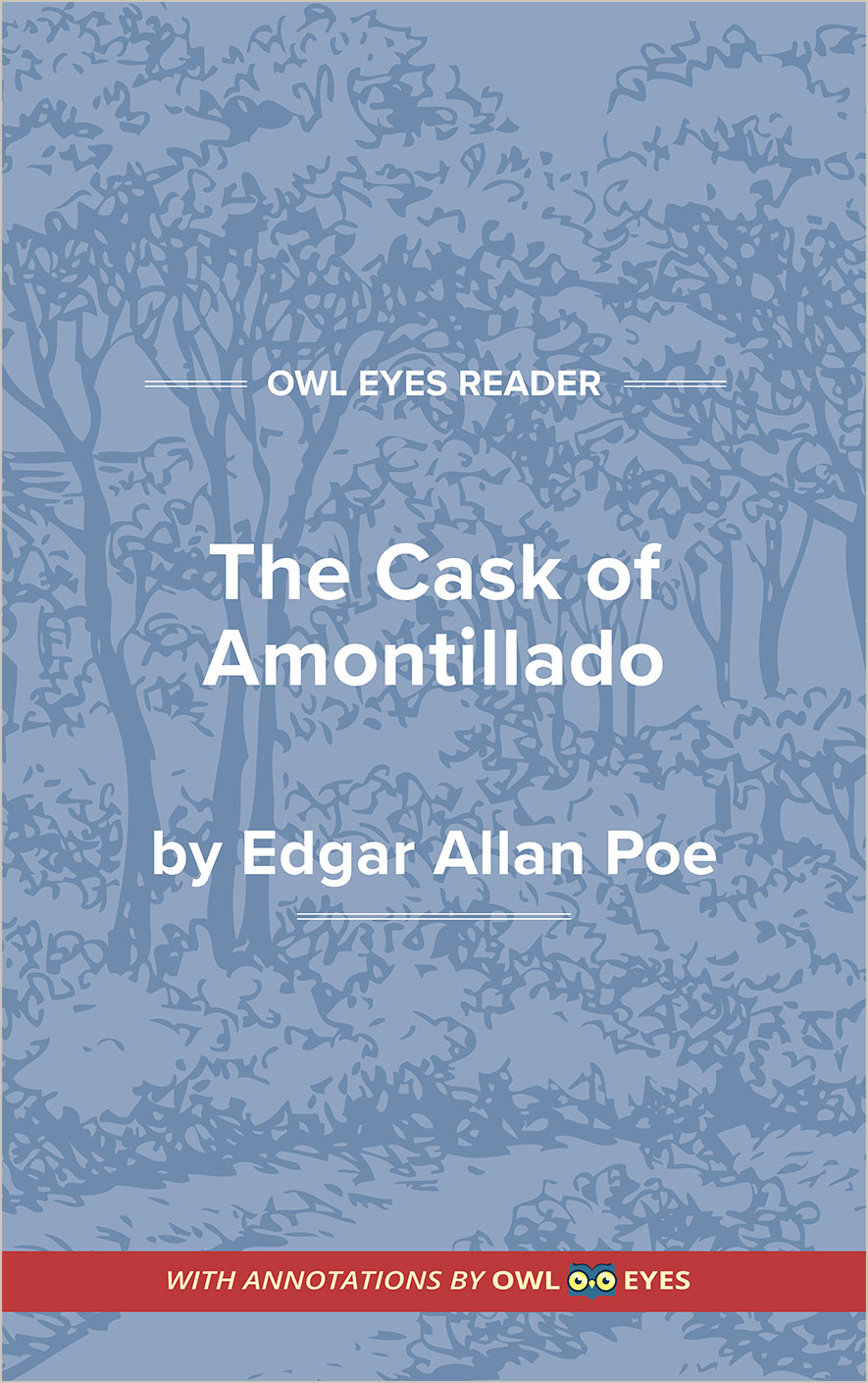- Annotated Full Text
- Literary Period: Gothic
- Publication Date: 1846
- Flesch-Kincaid Level: 7
- Approx. Reading Time: 19 minutes
The Cask of Amontillado
“The thousand injuries of Fortunato I had borne as I best could, but when he ventured upon insult, I vowed revenge.” This is the only explanation Montresor offers the audience as a motive for the vicious revenge he enacts in Edgar Allan Poe’s “The Cask of Amontillado.” With the promise to taste a cask of extremely rare Amontillado sherry, Montresor lures Fortunato into the catacombs where he traps Fortunato and leaves him to die. Poe juxtaposes the gruesome thoughts of Montresor with the innocent obliviousness of the drunken Fortunato to create dramatic irony that increases the audience’s horror. Like many other Poe protagonists, Montresor seems pathologically obsessed with a single objective, which he pursues without a clear reason or rationale. Varying interpretations of Montresor's tone and confessional style have divided scholars on the character’s mental state and purpose of the story. Is he tormented by guilt and driven to confession, or does he take pleasure in relating his successful vengeance fifty years after the fact? This haunting story of vengeance demonstrates Poe’s mastery in storytelling. He meticulously crafts the story’s setting, character descriptions, and narrative voice in order to evoke a single mood and palpable feeling of revulsion. For this reason, this story has been credited as the basis for many conventions of the modern short story.
- Annotated Full Text
- Literary Period: Gothic
- Publication Date: 1846
- Flesch-Kincaid Level: 7
- Approx. Reading Time: 19 minutes

